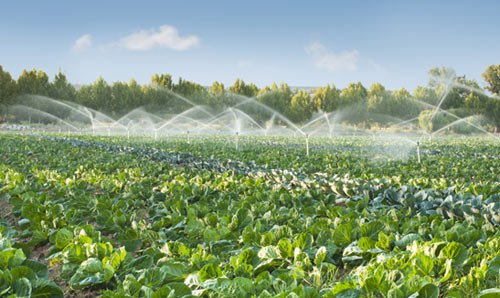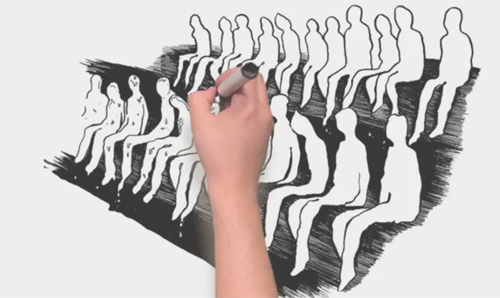
Society and Environment (SERG)
Society and Environment (SERG) seeks to transform dominant analytical approaches to the study of the environment in order to develop just, inclusive, and sustainable transitions to future ways of living on earth.

Members of SERG conduct research into diverse environmental issues, providing key evidence and arguments for how and why more inclusive and egalitarian forms of environmental policy and practice can be achieved.
Research interests include water governance, global urbanization, terrestrial geo-engineering, waste, political ecologies, and climate change policy.
Members of SERG continue to be foundational to contemporary environmental thought, especially in the fields of urban political ecology and nature/society theory.
SERG members are interested in contesting environmental injustice and exclusion, as well as better understanding citizen protest and contemporary political legitimacy.
As part of this, SERG members illuminate the sites, actors, reasons and mechanisms involved in fostering green practices in the 21st century.

This includes analyses of sustainability experimentation as well as studies of urban governance, especially through work on processes such as ecological gentrification, urban greening, and carbon accounting.
SERG members are interested in how human and non-human processes and dynamics intersect and become entangled.
Members conduct research on how to change key elements of socio-ecological regimes, such as energy supply, water usage, and the disposal and re-use of commodities.
SERG members contribute to global theoretical debates on social and environmental vulnerability, democratization, political ecology, and the possibilities for emancipatory socio-ecological transformations.
Through studies of contemporary environmental thought and action, SERG members continue to further the development of ecologically and socially just transitions in the increasingly pressing context of planetary environmental change.
Our research
Themes
- Identifying feasible and socially just means of altering systems of water supply, energy supply and everyday commodity provision
- Interrogating the political and spatial challenges associated with ongoing transformations of the global energy system in response to climate change and security challenges
- Theorising and substantiating the urban process as a contested assemblage of entangled social and physical processes
- Theorising the society-nature nexus
- Understanding and reducing people’s vulnerability to environmental insecurity
- Unpacking and advancing the politics and practices of sustainability transitions in contemporary urban contexts
Projects
- Looper
- Manchester Urban Observatory
- Triangulum
Our people
Academic staff
- Amy Barron - More-than-representational-theories; Affect and emotion; Place and identity; Geographies of ageing and the life-course; Creative and participatory methodologies
- Rob Bellamy - Climate change; Geoengineering; Social appraisal; Risk perception; Climate governance
- Joe Blakey - The political; Carbon accounting and budgeting; Environmental governance; Accounting and accountability; Post-democracy
- Stefan Bouzarovski - Energy and fuel poverty; Infrastructure development; Urban spatial inequality; Multi-level governance; Social network analysis
- Alison Browne - Everyday life; Water, energy, food, waste, plastics; Sustainable consumption and production; Governance and sustainability transitions; China, UK, Australia
- Noel Castree - Political economy; Marxism; Environmental change; Expertise; Politics of knowledge
- Henrik Ernstson - Urban political ecology; Postcolonial urbanism; Environmental expertise and knowledge politics; Political and social movements; Film-based ethnography
- James Evans - Urban living labs; Sustainable cities; Smart cities; Governance; Mobile methods
- Aurora Fredriksen - More-than-human geographies; Affect and emotion; Wildlife; Feminist science studies; Environmental humanities
- Nate Millington - Urban political ecology; Climate change; Water governance; Waste
- Nathaniel O'Grady
- Saska Petrova - Vulnerability and precarity; Gender and infrastructure; Environmental governance; Rural and peri-urban communities; Post-colonial political ecologies
- Laura Pottinger
- Kate Scott - Climate change mitigation; Sustainable consumption and production; Input-output analysis; Resource efficiency/circular economy; Energy geographies
- Kathleen Stokes - Urban infrastructures; Urban governance and citizenships; Labour and social reproduction; Waste; Everyday life/politics
- Erik Swyngedouw - Political ecology; Democratisation; Hydro-social change; Political conflict; Urban insurgencies
- Mark Usher - Urban nature and ecology; Water politics and governance; State, territory and citizenship; Infrastructure and transitions; Governmentality and biopolitics
- Kelly Watson - Evaluation and valuation practices; Urban learning; Health and wellbeing; Smart cities; Built environment and infrastructure
PhD students
- Cecilia Alda-Vidal
- Lourdes Alonso Serna
- Godfred Amankwaa (Global Development Institute)
- Daniel Arubayi
- Amy Barron
- Joseph Chambers
- Patricio Cleary
- Ami Crowther
- Purva Dewoolkar (Architecture)
- Gizem Grünberg
- Samir Harb
- Mario Hernandez Trejo
- Majd Jayyousi
- Harriet Larrington-Spencer
- Qi Liu
- Denise Misleh Heller
- Nelson Rodriguez Hernandez
- Kathleen Stokes
- Mohd Tarmizi Mohd Amin
- Arianna Tozzi
